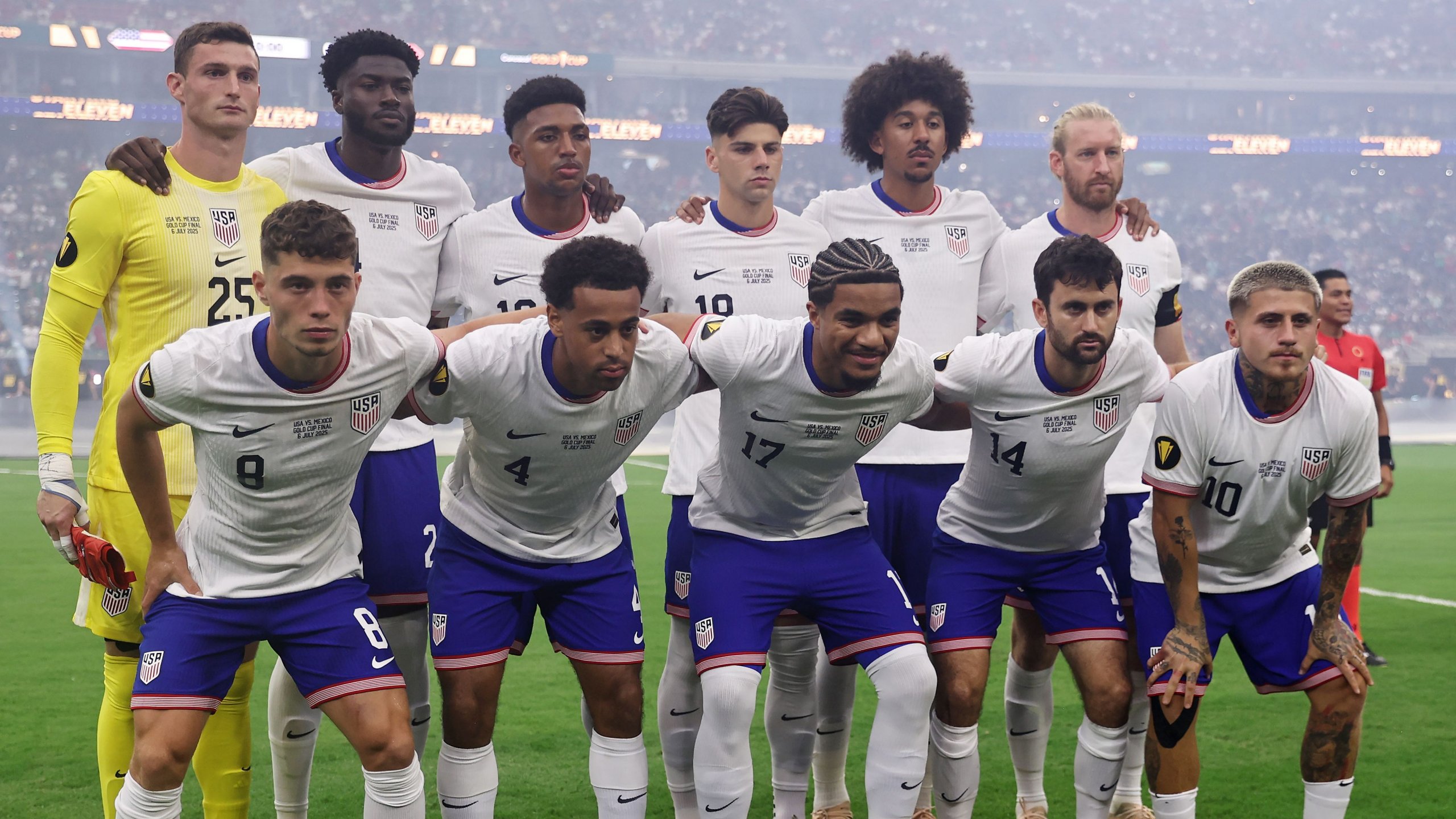Gold Cup roster misfire: Gomez points at Pochettino
Gold Cup roster decisions once again dominated post-tournament debate after the United States fell 2-1 to Mexico in the 2024 CONCACAF showpiece. Ex-USMNT striker and ESPN pundit Herculez Gomez insists head coach Mauricio Pochettino set his players up to fail by leaving proven stars at home and relying on “15 MLS players” with limited international experience.
Gold Cup roster gamble backfires
The Argentine coach took charge last October and had yet to assemble a full-strength squad in any window. For the Gold Cup he doubled down on experimentation, omitting European-based regulars such as Christian Pulisic, Folarin Balogun and Ricardo Pepi. According to Gomez, that choice alone tilted the scales against the Americans. “Because you don’t have a Lionel Messi or Cristiano Ronaldo who can rescue you, you need the sum of your parts,” he argued on his YouTube channel. “Better parts equal better results.”
MLS core shows flashes, but inexperience tells
Fielding a team built around domestic prospects was admirable on paper—especially with World Cup 2026 on home soil—but the stakes proved too high. Midfielder Sebastian Berhalter, forward Patrick Agyemang and full-back Antony Freeman all received baptism-by-fire minutes, yet Mexico’s savvy exploited every hesitation. For Gomez, blaming those newcomers is unfair. “It’s on the coach,” he said. “The players to handle this environment exist; they just weren’t called.”
Pochettino’s rationale under scrutiny
Pochettino defended his selections by citing club-release issues, fixture congestion and the need to widen the talent pool. Nevertheless, critics note that other federations successfully negotiated late-season releases for key men, while the U.S. Soccer Federation had months to coordinate with European clubs. Beyond personnel, tactical cohesion appeared lacking: the U.S. pressed unevenly, struggled to progress through midfield and conceded from a recycled set piece in the final.
Historical context of selection headaches
The Gold Cup roster controversy is not new. Past managers Bruce Arena, Jurgen Klinsmann and Gregg Berhalter also juggled club commitments and regional obligations, often splitting squads between the Gold Cup and concurrent tournaments such as Copa América. Gomez believes the federation must finally break that cycle. “You can’t continue sending B-teams and expect A-level trophies,” he warned. “Fans remember results, not process rhetoric.”
Impact on player hierarchy
Performances did identify a few bright spots. Goalkeeper Drake Callender made sharp saves against Canada; winger Kevin Paredes flashed one-v-one ability. Still, neither projects as a talisman. Without Pulisic’s creativity or Balogun’s finishing, the U.S. managed just seven shots on target combined in the semifinal and final. Numbers that low amplify Gomez’s point that marginal upgrades could have swung tight matches.
Lessons ahead of 2026
With the World Cup only two years away, roster cohesion and tactical clarity are paramount. Pochettino must use upcoming September and October windows to blend Europe-based stars with MLS depth pieces, establishing a clear pecking order. A Nations League quarter-final in November offers a competitive dress rehearsal; failure to summon most first-choice options then would inflame criticism and potentially destabilize locker-room confidence.
Can Pochettino regain trust?
Many U.S. supporters welcomed the hiring of a globally respected manager after Gregg Berhalter’s turbulent tenure. However, goodwill erodes quickly when silverware slips away—especially to arch-rival Mexico. Public remarks from Gomez and other alumni resonate because they echo a fan base tired of “talent on paper” narratives. Victory in CONCACAF remains the minimum benchmark by which American coaches are judged.
Possible solutions
- Early negotiations with clubs: Secure release clauses for core starters well before tournament windows.
- Balanced squad architecture: Mix 14–16 established internationals with 7–9 emerging prospects instead of wholesale experimentation.
- Tactical continuity: Run the same pressing and build-up patterns across friendlies and competitive fixtures.
- Leadership group: Entrust the armband to veterans like Tyler Adams or Weston McKennie to stabilize younger teammates.
Opinion: A self-inflicted wound
Gomez’s critique rings true because it targets strategy, not effort. The Gold Cup roster was ambitious in theory but naive in execution. Development and winning are not mutually exclusive; the best programs achieve both by phasing prospects beside proven leaders. Pochettino’s pedigree suggests he understands that balance, yet his first major test with the USMNT proved otherwise. If he repeats the mistake, the outcry will dwarf this summer’s backlash.
Your global gateway to nonstop football coverage:
News Goal
Share this content:

